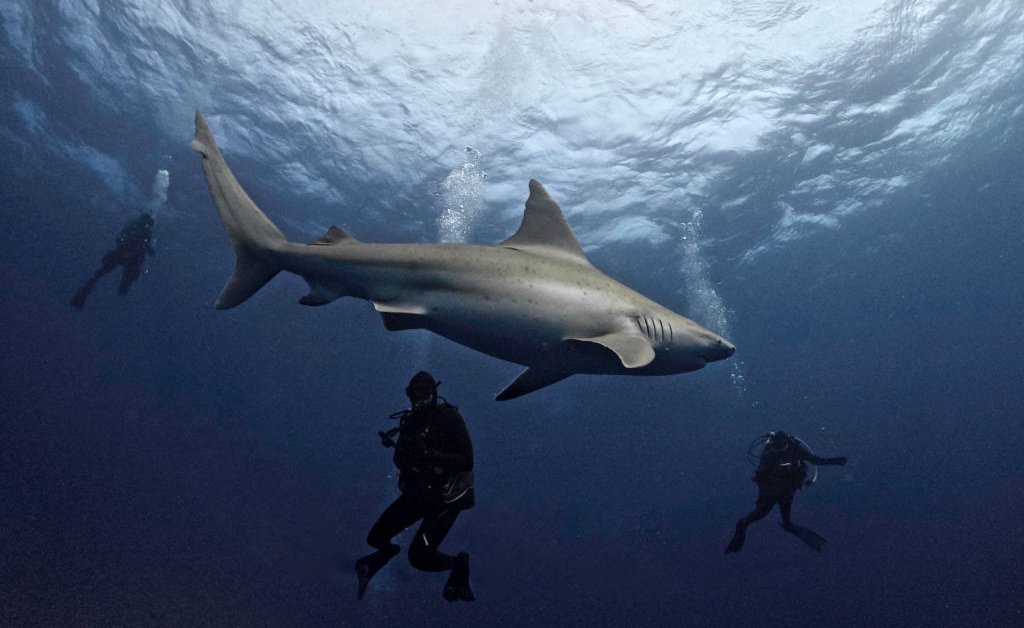The Jaws Effect: How A Movie Fueled Fear And Misconceptions About Sharks

Welcome to your ultimate source for breaking news, trending updates, and in-depth stories from around the world. Whether it's politics, technology, entertainment, sports, or lifestyle, we bring you real-time updates that keep you informed and ahead of the curve.
Our team works tirelessly to ensure you never miss a moment. From the latest developments in global events to the most talked-about topics on social media, our news platform is designed to deliver accurate and timely information, all in one place.
Stay in the know and join thousands of readers who trust us for reliable, up-to-date content. Explore our expertly curated articles and dive deeper into the stories that matter to you. Visit Best Website now and be part of the conversation. Don't miss out on the headlines that shape our world!
Table of Contents
The Jaws Effect: How a Movie Fueled Fear and Misconceptions about Sharks
Summer blockbuster hits often leave a lasting impression, but few have had as significant – and arguably damaging – an impact as Steven Spielberg's 1975 thriller, Jaws. While a cinematic masterpiece, the film's portrayal of great white sharks as relentless, man-eating killing machines fueled a widespread, and largely inaccurate, fear of these magnificent creatures. This "Jaws effect" continues to influence public perception and conservation efforts to this day.
A Cultural Phenomenon, a Conservation Crisis:
Jaws wasn't just a movie; it was a cultural phenomenon. Its iconic score and suspenseful narrative captivated audiences worldwide, solidifying the great white shark's image as a terrifying predator. This cinematic success, however, came at a cost. The film's release coincided with a dramatic increase in shark hunts, driven by a public terrified of a perceived imminent threat. Millions of sharks, many of which were not even great whites, were slaughtered, decimating populations already vulnerable to overfishing and habitat destruction.
The Myths Perpetuated by Jaws:
The movie perpetuated several dangerous myths about sharks:
- Relentless Hunters: Jaws depicts a great white shark relentlessly pursuing its prey, ignoring the reality of their hunting strategies and largely opportunistic feeding habits. Great white sharks, while apex predators, are not inherently aggressive towards humans.
- Man-Eating Machines: The film’s portrayal of the shark as a bloodthirsty killer fueled the misconception that all sharks are inherently dangerous to humans. In reality, shark attacks are extremely rare, and many are cases of mistaken identity. .
- Unpredictable Behavior: Jaws presented the shark as a completely unpredictable and uncontrollable force of nature. While shark behavior is influenced by various factors, it's far from random chaos. Scientists have made significant strides in understanding shark behavior and ecology.
Debunking the Myths and Protecting Sharks:
Since the release of Jaws, significant research has debunked many of the myths surrounding sharks. Scientists have shown that great white sharks, like many other shark species, play a crucial role in maintaining the health of marine ecosystems. They are apex predators, keeping prey populations in check and contributing to overall biodiversity. The loss of these magnificent animals has far-reaching consequences for ocean health.
The Importance of Shark Conservation:
The "Jaws effect" highlights the profound impact media can have on shaping public perception and influencing conservation efforts. While Jaws remains a cinematic triumph, its legacy underscores the importance of accurate and responsible portrayal of wildlife in media. Today, conservation organizations are working tirelessly to protect sharks from overfishing, habitat loss, and the lingering effects of the fear instilled by the film.
What You Can Do:
- Learn the facts: Educate yourself about sharks and their importance in the marine ecosystem.
- Support conservation: Donate to or volunteer with organizations dedicated to shark research and conservation.
- Spread awareness: Share accurate information about sharks to combat misinformation.
The legacy of Jaws serves as a cautionary tale: the power of media to shape public perception, both positively and negatively, is undeniable. By understanding the "Jaws effect" and actively promoting accurate information, we can work towards a future where fear gives way to respect and conservation for these vital creatures of the sea.

Thank you for visiting our website, your trusted source for the latest updates and in-depth coverage on The Jaws Effect: How A Movie Fueled Fear And Misconceptions About Sharks. We're committed to keeping you informed with timely and accurate information to meet your curiosity and needs.
If you have any questions, suggestions, or feedback, we'd love to hear from you. Your insights are valuable to us and help us improve to serve you better. Feel free to reach out through our contact page.
Don't forget to bookmark our website and check back regularly for the latest headlines and trending topics. See you next time, and thank you for being part of our growing community!
Featured Posts
-
 Red Carpet Ready The Flip Flop Debate Heats Up
Jun 18, 2025
Red Carpet Ready The Flip Flop Debate Heats Up
Jun 18, 2025 -
 Climate Scientists Under Siege Trumps Summer Offensive And Whats At Stake
Jun 18, 2025
Climate Scientists Under Siege Trumps Summer Offensive And Whats At Stake
Jun 18, 2025 -
 Polemica Saida Do Flamengo Jogador Deixa O Mundial Para Jogar Em Outro Time
Jun 18, 2025
Polemica Saida Do Flamengo Jogador Deixa O Mundial Para Jogar Em Outro Time
Jun 18, 2025 -
 Asi Forjo River Plate A Franco Mastantuono Su Nueva Estrella
Jun 18, 2025
Asi Forjo River Plate A Franco Mastantuono Su Nueva Estrella
Jun 18, 2025 -
 Urawa Reds X River Plate Analise Da Escalacao E Perspectivas Do Jogo
Jun 18, 2025
Urawa Reds X River Plate Analise Da Escalacao E Perspectivas Do Jogo
Jun 18, 2025
